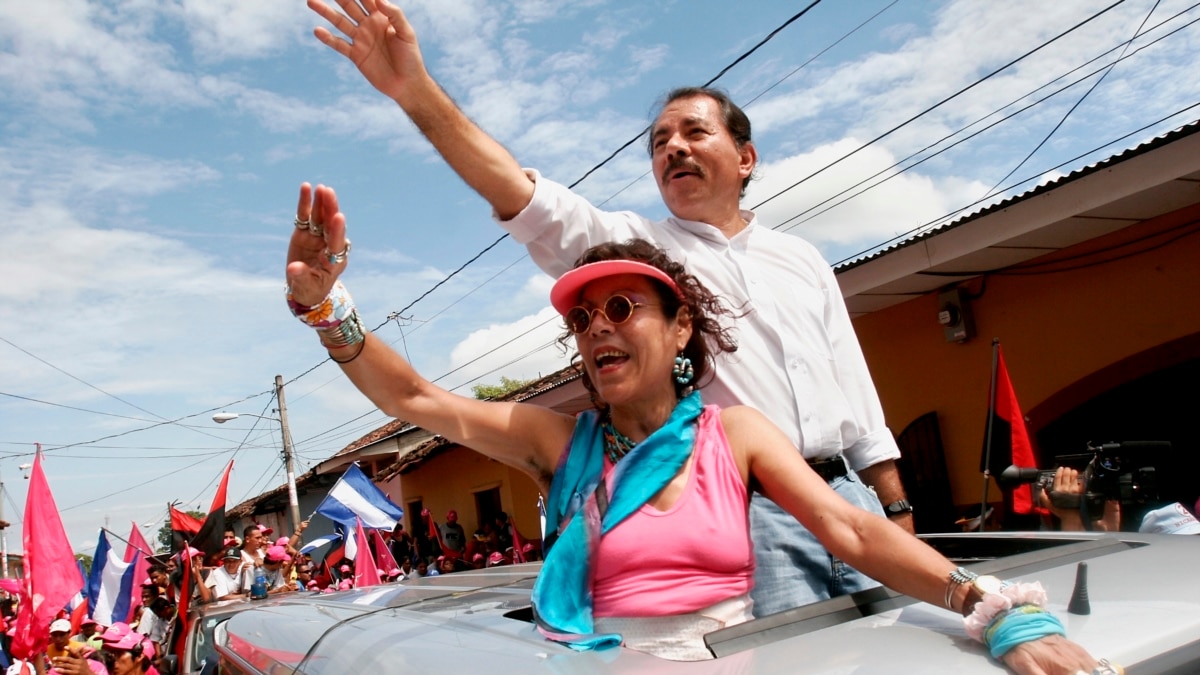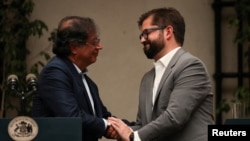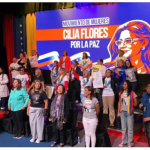The actions of the Nicaraguan government against political opponents have earned it the rejection of Latin American political leaders called “leftists”, such as Colombia, Mexico, Chile and Argentina, who, according to experts, are leaving behind “ideological solidarity”.
President Daniel Ortega recently stripped more than 300 opponents of their nationality, something that would mark “the first time that democratically elected left-wing leaders have differentiated themselves from authoritarian regimes, regardless of their ideological rhetoric,” he told the voice of america Manuel Orozco, Director of Migration, Remittances and Development at the Inter-American Dialogue, a center for analysis and political exchange.
“Nicaragua is not seen, nor interpreted, nor considered as part of the left, but rather as a common dictatorship that democracies are not prepared to put up with,” added Orozco.
Among the Nicaraguans stripped of their nationality are several ex-guerrillas who fought alongside Ortega before the triumph of the Sandinista revolution, such as Dora María Téllez, for whom the Chilean government, led by Gabriel Boric, and President Andrés López Obrador, requested her freedom on several occasions, after being detained.
Boric was the first to react in the region after learning that the poet Gioconda Belli and the writer Sergio Ramírez, among others, had been stripped of their nationality. “The dictator does not know that the homeland is in his heart and in his actions, and is not deprived by decree,” said Boric.
Later, the president of Colombia, Gustavo Petro, who is a former guerrilla with a leftist tendency, followed. Petro, through the Colombian Foreign Ministry, expressed that he “has registered with revulsion the measures taken arbitrarily by Nicaragua against citizens of his country.”
Nicaragua is not seen or interpreted as part of the left, but rather as a dictatorship that democracies are not prepared to endure.
The “only crime” of the opponents “has been defending democracy, the right to criticize and universal human rights,” said the Ministry of Foreign Affairs.
They are left that bet on human rights: sociologist
According to the Nicaraguan sociologist and feminist María Teresa Blandón, “a very clear role of left-wing governments has been seen” in the crisis in this Central American country.
“We are talking about a new left that, as the president of Chile, Gabriel Boric, has said, who have a commitment to peace, tolerance and plurality of ideas, and human rights, I think that gives us hope,” the sociologist stressed to the VOA.
Ryan Berg, director of the Americas Program at the Center for Strategic and International Studies, comments that in Nicaragua “there are few political reasons for leftist governments to defend Ortega.”
We are talking about a new left… that has a commitment to peace, tolerance and plurality of ideas, and human rights.
In his opinion, this is a government that commits serious violations of human rights, that has committed crimes against humanity. “Nicaragua offers nothing but headaches for leftist governments in Latin America,” Berg told the VOA.
Argentina, governed by left-leaning Alberto Fernández, has also offered support to Nicaraguans affected by Ortega’s latest decisions related to the nationality of opponents.
In this sense, the Argentine deputy Luciana Echevarria, of the Socialist Party of that country, said via zoom to the VOA that “it is something positive that they are granted citizenship,” especially coming from Argentina, which in his opinion “has had a lukewarm and hesitant position with what has been happening in Nicaragua.”
“We had not achieved a firm decision from the Argentine government cataloging the Ortega regime as what it is, a dictatorship… and this was not a spontaneous reaction from the government, but arose from the pressure of intellectuals, artists, demanding a gesture towards those people,” he said.
According to Echevarría, we must continue “vigorously condemning the Ortega Murillo dictatorship so that the regime falls.”
Left must be progressive
Manuel Orozco, from the Inter-American Dialogue, assures that the current Latin American left “is clear that its progressive agenda must be pragmatic and consistent with the demands of people in modern society,” for example, better access to public services, particularly in health and education.
“Countries that break away from that face social protest, which is what is seen increasing in Mexico, or was observed with the Chilean referendum, for example.”
These differences between leaders would also respond to the idea that the left in Latin America is heterogeneous, from Venezuela and Cuba to Chile, said Benjamin N. Gedan, director of the Latin American Program at the Wilson Center, a think tank in Washington DC.
Gedan called it “fortunate” that Ortega appears to have lost almost all the support of Latin America’s leftist rulers.
“Although Ortega retains important international allies, including China, his regional isolation should help pressure his regime to reconsider its crackdown on the political opposition, independent media, the Catholic Church, and other important elements of Nicaraguan civil society. ”, he concluded.
Connect with the Voice of America! Subscribe to our channel Youtube and activate notifications, or follow us on social networks: Facebook, Twitter and instagram the Voice of America.


















